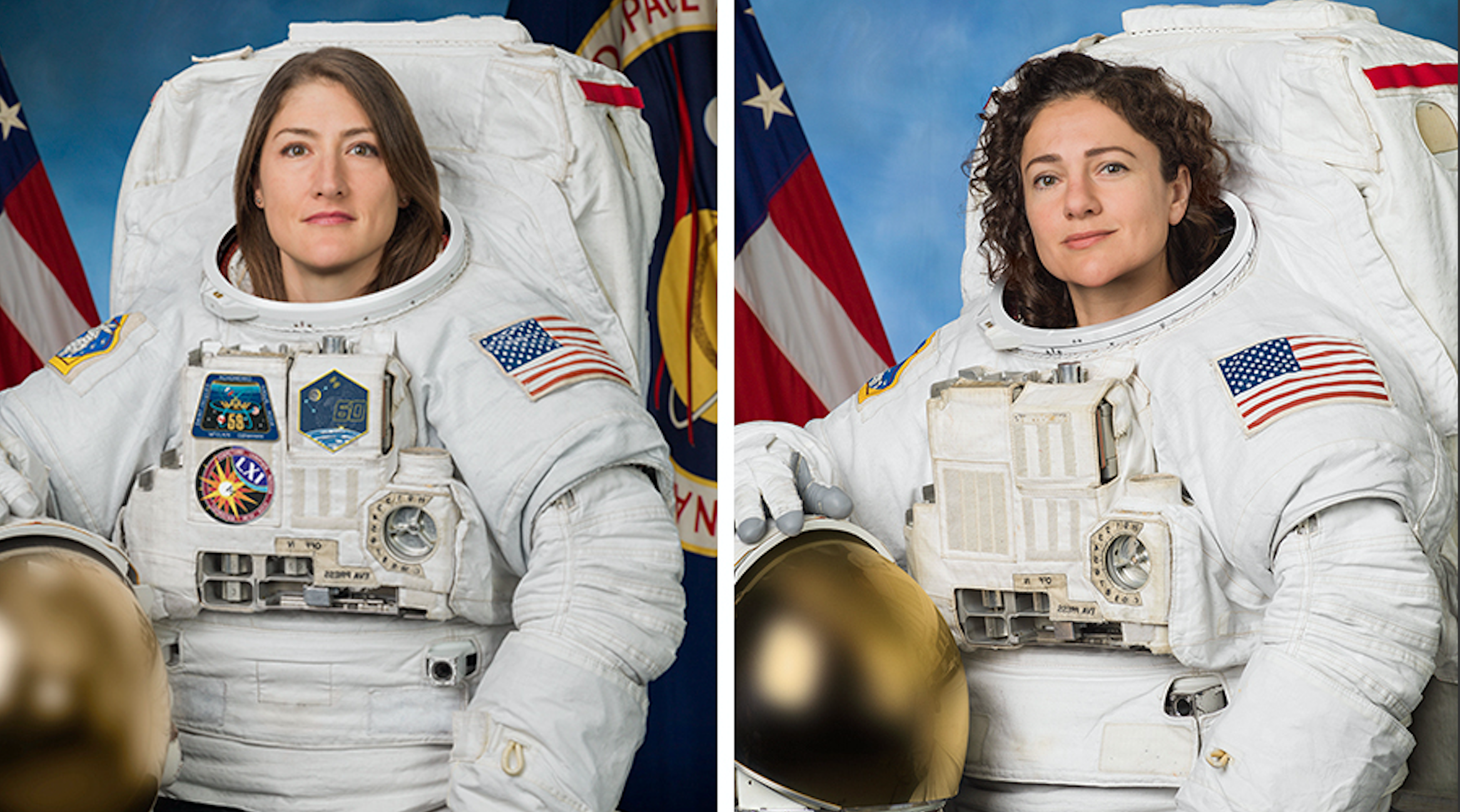How to Watch the First All-Female Spacewalk on Friday

Credit to Author: Becky Ferreira| Date: Thu, 17 Oct 2019 12:43:12 +0000
A pair of astronauts are preparing to make history this week by conducting the first space walk with an all-woman team.
Assuming all goes to plan, NASA crew members Christina Koch and Jessica Meir will leave the interior of the International Space Station on Friday morning at 7:50 AM ET to replace faulty equipment on the craft’s exterior. The event will be livestreamed on NASA TV.
Koch, who arrived on the ISS in March, has already performed three space walks, or extravehicular activities (EVAs). Meir was launched to the station just a few weeks ago, on September 25. Friday’s EVA will mark her first time outside the ISS.
The first all-female space walk was originally scheduled to take place in March, and would have included Koch and fellow NASA astronaut Anne McClain, who returned to Earth in June. But NASA canceled the pairing when only one of the two medium-sized spacesuits onboard was made ready.
McClain had trained in both the large and medium sized suits on the ground, and found both to be comfortable, so NASA planned to have her wear the larger suit while giving the medium to Koch. But when McClain realized the medium was the better fit during her first space walk, which was just a week before her planned EVA with Koch, NASA instead opted to partner the two women in consecutive EVAs with astronaut Nick Hague.
“We do our best to anticipate the spacesuit sizes that each astronaut will need, based on the spacesuit size they wore in training on the ground,” Brandi Dean, a spokesperson for NASA, told Motherboard at the time. “No one training environment can fully simulate performing a spacewalk in microgravity, and an individual may find that their sizing preferences change in space.”
NASA received public backlash and accusations of sexism over the cancellation. In a Tuesday teleconference about the upcoming Koch/Meir space walk, agency officials reiterated that gender does not play a role in the selection of EVA crews.
“All of our crew members are completely qualified to do this and I think the fact that it will be two women is just a reflection of the fact that we have so many capable, qualified women,” said Megan McArthur, deputy chief of NASA’s Astronaut Office. “In truth, in terms of looking at the workload that we have coming forward, this was the right crew to send out to do this set of tasks.”
So what exactly are these tasks that Koch and Meir will be completing on Friday? The crew is charged with replacing one of the station’s 24 Battery Charge/Discharge Units (BCDUs), which are exterior battery chargers, after it malfunctioned last week.
The faulty unit was turned off while Koch and NASA astronaut Andrew Morgan installed new lithium-ion batteries during an EVA on October 11, as part of a series of spacewalks focused on updating the station’s batteries. But one BCDU only partially turned back on when they were done. The failure poses no risk to the crew, NASA said, but it is still ideal to restore full power to the unit.
Koch and Meir will replace the BCDU with a spare, then adjust some other external hardware to prepare for future EVA missions. The space walk is expected to last several hours.
The astronauts first hinted that they might be assigned to the same EVA during an interview aboard the ISS on October 4.
“We still don’t know the final assignments for all of those [EVAs] but yeah, there’s a chance that we could be doing it together,” Meir said. “Any of the [crew] combinations are a possibility.”
In the same interview, Koch, who is on track to break the record for the longest single spaceflight by a woman, said she wrestled with the idea that her achievements are often framed by gender. Ultimately, though, she said that it was important to acknowledge the specific milestones of women in spaceflight because “of the historical nature of what we’re doing.”
“In the past, women haven’t always been at the table,” Koch said. “It’s wonderful to be contributing to the human spaceflight program at a time when all contributions are being accepted, when everyone has a role, and that can lead, in turn, to an increased chance for success.”
This article originally appeared on VICE US.